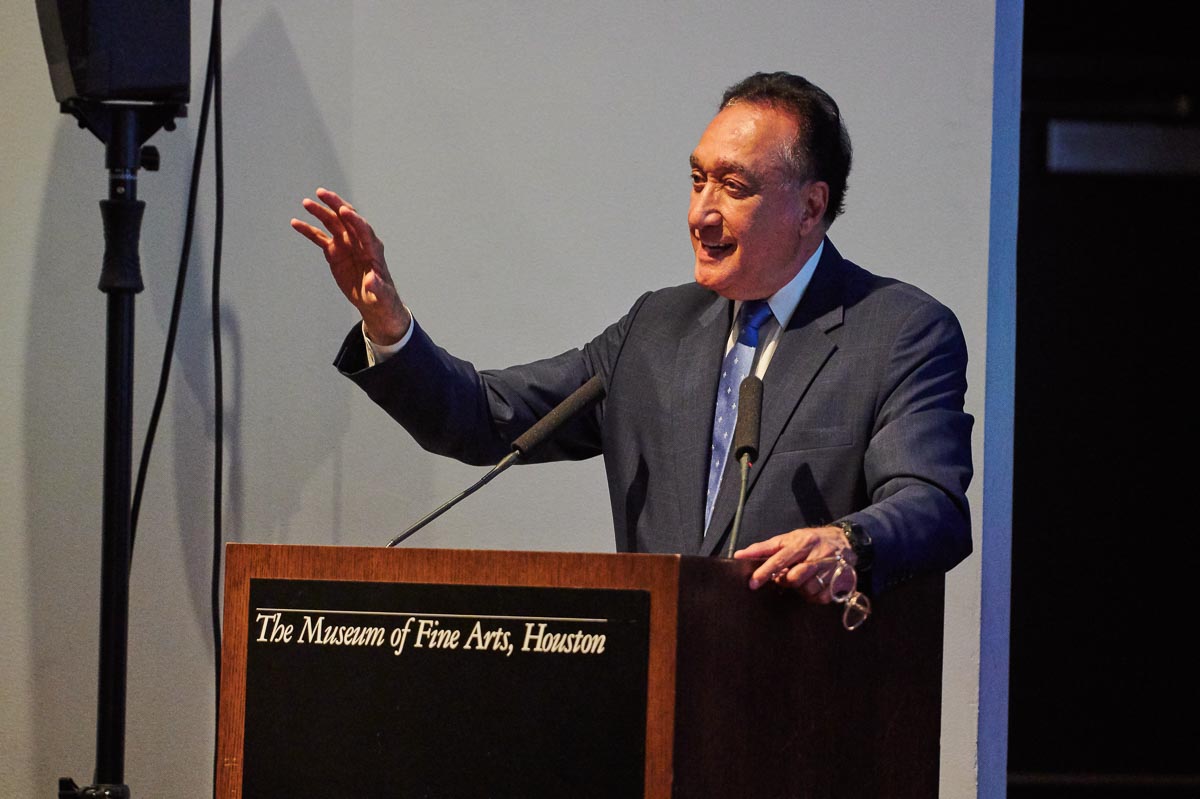Inequality issues like poverty, homelessness, a widening income gap, access to opportunity and others will not be solved by the federal or state government, but instead by local policies, according to Henry Cisneros, former secretary of HUD and former mayor of San Antonio.
During his Kinder Institute Forum Wednesday, Cisneros said the global economy of metropolises and local government policies will be the solutions to America's current inequality issues.
Holding the responsibility of so many Americans, Texas cities will have to rise to the challenge of creating "inalienable happiness" for its residents, Cisneros said.
"Texas today has three cities, Houston, San Antonio and Dallas, in that order, in the 10 most populous in the country," Cisneros said. "That has happened only once before in American history, when Brooklyn, Buffalo and New York City were in the most populous in the 1860s. Austin sits at number 11 and it's expected to move up in the next census."
The local levels of governments have to use their economies to drive change. According to Cisneros, a city's economy is driven by political strategies, nonprofit initiatives, entrepreneur resources, demographic changes and technological advancements.
"Can cities use this point of inflection in terms of the economic momentum behind series, on the cusp of new opportunities, to harness these powerful dynamics and make them work for people who are at the margins of society? Can city governments and city leaders design intentional strategies to do this?"
More importantly, according to Cisneros, will cities be able to use the economic momentum to advance the most underserved populations of their city?
To Cisneros, an equitable community is: "A community characterized by social and economic equity, that would have open pathways to opportunity. No matter a person's origins, residents could reasonably hope to rise from the most poverty-stricken neighborhoods, or the penniless frustration of the immigrant, to quality education and the economic and reputational rewards of hard work. People could strive and sacrifice in the knowledge that rewards are fairly allocated for work, if not in the immediate generation, then for children and loved ones in the subsequent generation. In an equitable city, those rewards would be apportioned, not by any inheritance or elitism, not through legacies of segregation or favoritism or unfair advantage. Cities can be the building blocks of the society that Dr. King prayed for when he dreamt that people would be judged not on the color of their skin, but by the content of their character. It would be an urban society in which higher education was accessible, jobs were expanding, and were characterized by career tracks to advancement. Access to decent housing was fair and non -discriminatory. Capital was accessible for striving entrepreneurs and disinvestment neighborhoods. And public decision making was inclusive, open and intentionally equity-driven. Such a city would reap the benefits of its quest for equity. It would reap the benefits in productivity, in ambitions unleashed, in talents fulfilled, in creativity and investment allocated."
Some cities are already in pursuit of creating equitable living for their residents. Examples include Atlanta's rebuilding of their public housing, Oakland building their public housing near public transportation options, Denver creating scholarship programs for local graduates to attend apprenticeship programs, and San Antonio investing in pre-k education for all children.
For Houston, creating an equitable city would mean investing in education (first with pre-k), small businesses (the (Ion) development in Midtown is a good start), affordable housing connected to transportation systems (Texas' sprawl needs to be revisited), and multi-modal transit (transportation connects people to opportunity). It also means nurturing the connections between public, private and nonprofit organizations for "collective impact."
"Imagine if a city put all of the equity pieces together and said, 'This [equity] is our purpose. This is why we exist as a community,'" Cisneros said. "This is the next evolution of city governments in our society."
To watch the entire Kinder Institute Forum lecture, click the video below or visit our YouTube page.

